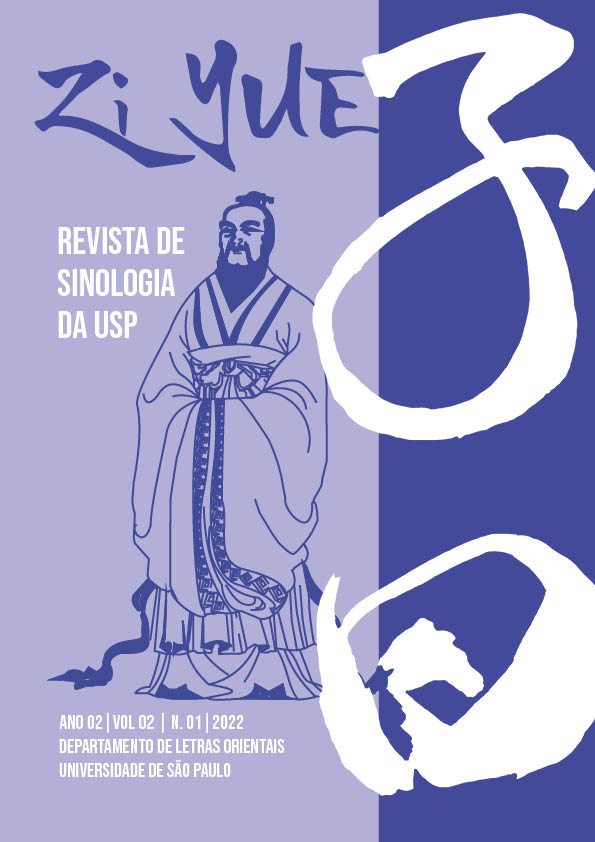Evelopment and democracy in emerging nations: democratic, constitutional and cultural aspects of the Chinese government
DOI:
https://doi.org/10.11606/issn.2675-4614.v2i01p94-103Keywords:
democracy, development, China , modern ageAbstract
This article intends on drawing relations and paradoxes about the Chinese political structure, associate historical aspects that shaped western and eastern thought, especially on recalling the term democracy and comprehending its consequences in the development characteristics of emerging nations. By proposing a comparative investigation of the structuring elements of both societies, the article sets out to initiate a discussion about the fundamental democratic elements on which modernity is structured. Also, it intends on making a brief comparison between certain aspects of Latin America’s development. It also plans on exploring Chinese popular thinking. Lastly, this article has in view a reflection about new schools of thought in political science and international relations, with a highlight of Asian ones.Downloads
References
ACHARYA, Amitav. Theoretical perspectives on international relations in Asia. International relations of Asia, p. 57-82, 2008.
ASIAN BOSS. What does democracy means to the Chinese? [Street interview]. 2019. Disponível em: <https://www.youtube.com/watch?v=nl59t---30g>. Acesso em: 04 Nov 2019
BOBBIO, Norberto. A teoria das formas de governo. Universidade de Brasília, 1980.
CHIU, Hungdah. The 1982 Chinese constitution and the rule of law. Rev. Socialist L., v. 11, p. 143, 1985.
FAN, Jiayang. Liu Cixin’s War of the Worlds. The New Yorker, 2019. Disponível em: <https://www.newyorker.com/magazine/2019/06/24/liu-cixins-war-of-the-worlds> . Acesso em: 04 Nov 2019.
FIORAVANTI, Maurizio. Constitución: de la antigüedad a nuestros dias. Trad. Manuel Martinez Neira. Madrid: Trotta, 2001.
GOLDMAN, Merle et al. Sowing the seeds of democracy in China: Political reform in the Deng Xiaoping era. Harvard University Press, 1994.
HUNT, Alan. The problematisation of law in classical social theory, In: BANAKAR, Reza (ed.); TRAVERS, Max (ed.)
LOCKE, John. Segundo tratado sobre o governo civil e outros escritos. Rio de Janeiro: Vozes, “Clássicos do Pensamento Político”, 1994.
MAQUIAVEL, Nicolau. Comentários sobre a primeira década de Tito Lívio. “Discorsi”. Brasília, Editora UnB, 2000.
MARCÍLIO, Gina Vidal; BERTOLINI, Adriana Rosas. A ordem econômica internacional e suas implicações a construção econômica brasileira de 1988. Revista de Direito Brasileira, ano 3, vol. 6, 2013.
MAYER, Maria Luiza Alencar. Exclusão social e pobreza nas interfaces entre o direito econômico do desenvolvimento e o direito humano ao desenvolvimento. Direito e Desenvolvimento no Brasil do século XXI, 2013.
MEARSHEIMER, John J. Structural realism. International relations theories: Discipline and diversity, v. 83, 2007.
PRADO, Mariana Mota. O paradoxo das reformas do Estado de Direito: quando as reformas iniciais se tornam obstáculos para reformas futuras. Revista de Sociologia e Política V.21, n 45; p.73-90, mar 2013.
SCHAPIRO, Mário Gomes. Discricionariedade desenvolvimentista e controles democráticos: uma tipologia dos desajustes. Revista Direito GV. Vol. 12, n. 2, pp.311-344, 2016.
SCHMITT, CARL. Teoria de la constituición. Trad. Francisco Ayala. Salamanca: Alianza Editorial, 2006.
SCHNEIDER, Gabriela. Estado de Direito e democracia: uma abordagem acerca da não aquisição de direitos nos países em desenvolvimento na América Latina. Rev. Fac. Direito UFMG, Belo Horizonte, n. 64, p. 435-469, jan./jun. 2014.
SUNDFELD, Carlos Ari. Fundamentos do direito público. São Paulo: Editora Malheiros, 2015.
SWEDBERG, Richard. Max Weber e a ideia de sociologia econômica. Rio de Janeiro: Editora da UFRJ, 2005.
Downloads
Published
Issue
Section
License
Copyright (c) 2022 Maria Luiza da Silva Laranjeiras

This work is licensed under a Creative Commons Attribution-NonCommercial 4.0 International License.



